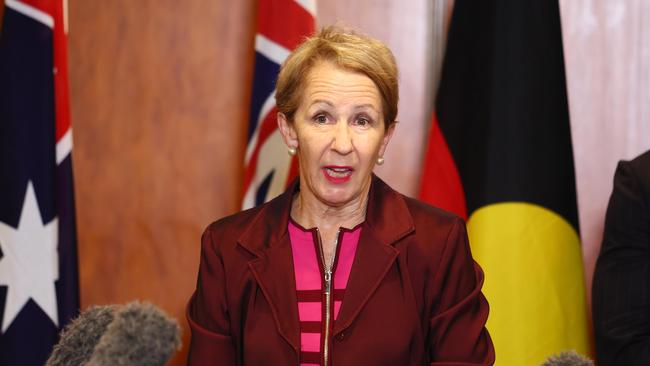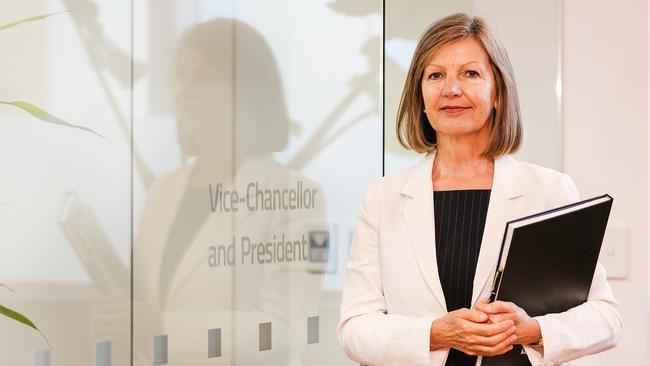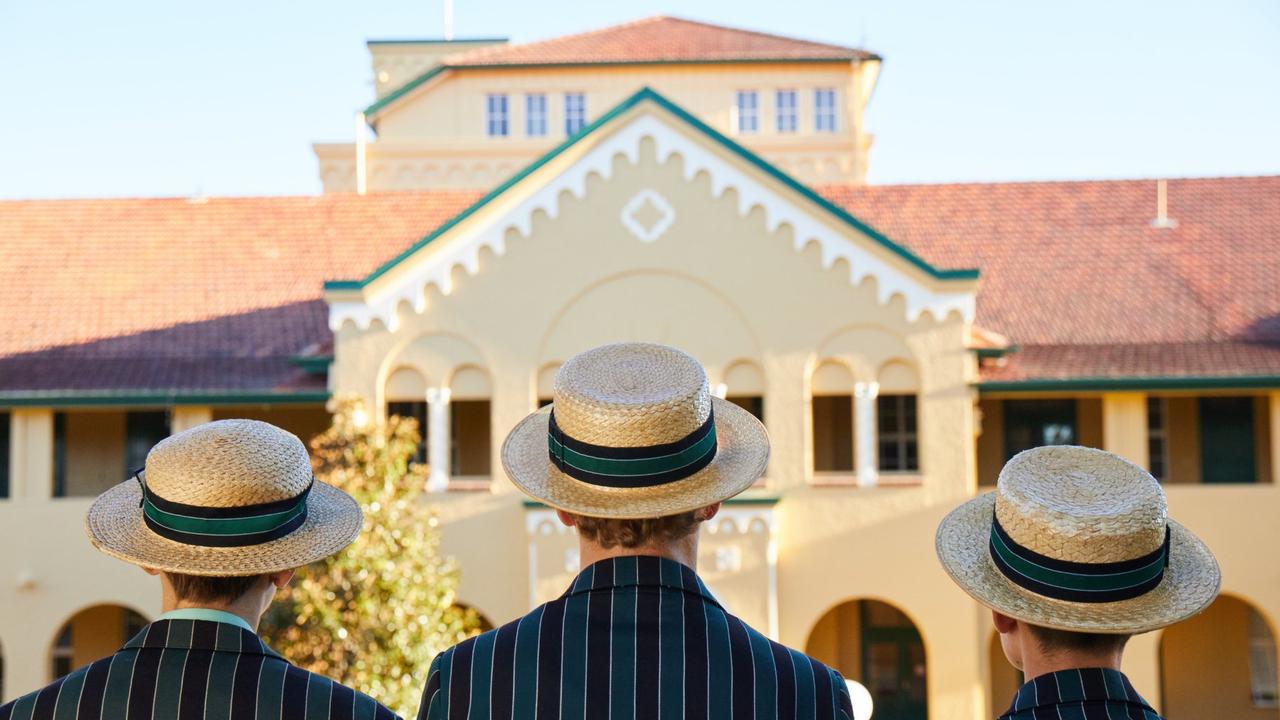Education summit’s eight-point plan to solve Queensland’s teacher crisis
Un-retiring teachers and cutting workloads are part of an eight-point plan to solve staffing issues in Queensland schools.

Education
Don't miss out on the headlines from Education. Followed categories will be added to My News.
Resurrecting retired teachers, incentives for regional schools, and taking aim at administration workloads are part of the eight-point plan to ease the teacher workforce crisis after Queensland’s education experts held a schools summit on Tuesday.
The key stakeholders involved included Education Minister Di Farmer, the Queensland Teachers Union, Queensland College of Teachers, various state universities, and representatives from the principals’ associations.
Eight ideas emerged as the frontrunners from the roundtable, with all those in attendance agreeing on the “universal issue” around addressing and easing teacher and principal workloads.

The key points to ease staff shortages – particularly in regional and remote schools – included accommodation incentives, further incentives based on a school’s remoteness, and developing a campaign around valuing teachers.
There is also an idea to bring teachers out of retirement and back into schools on a part-time basis, or ease retiring teachers’ schedules by reducing their roster to part-time, and using these veteran staff members for mentoring of student teachers or have them doing backroom tasks, to give more time back to senior teachers, principals, deputy principals or heads of department.
In the case of already-retired teachers, they would be contacted by their governing body and asked if they are interested in returning to school in a paid position either for a few days per week, or a few hours per day.
An all staff survey will also be done to hear directly from those on the frontline about the level of administrative task burden they are experiencing, they will also do an in-depth study of a chosen teacher and principal to study how much time each of these tasks take up.
Other ideas from Tuesday’s meeting included developing a long-term workforce strategy, and a ‘grow your own’ plan aimed at strengthening relationships between parents and school communities in regional areas to meet their needs.
Education Minister Di Farmer said the challenges are not unique to state schools, but cross over into the independent school system.
“I wanted this roundtable to meet to bring fresh ideas and feedback on things that they are seeing on the ground and any opportunities to expand current initiatives,” she said.
“One key takeaway from the roundtable was the impact that unsustainable workload is having on teachers and principals, I have asked the Department to conduct a school staff survey to hear from staff about the types of tasks that are taking them away from their core business of teaching and learning of young Queenslanders.
“I look forward to bringing everyone back to the table soon outlining what our government plans to deliver in regards to attracting, recruiting and retaining teachers and principals.”
Ms Farmer also acknowledged the need for Schooling Resource Standard funding to be brought up to 100 per cent for state schools, and the Queensland government is standing firm on its demands for the Federal Government to increase its share from 20 to 25 per cent.
Queensland Secondary Principals Association acting president Kirsten Ferdinands said there was a lot of positivity from the roundtable.
“A lot of positive and possible opportunities, which we can do right now, as well as prepare our networks for the future,” she said.

University of Sunshine Coast Vice-Chancellor Professor Helen Bartlett – who represented the Queensland Vice-Chancellor’s Committee – said Tuesday’s roundtable was “extremely productive”.
“The things that struck me in particular are the willingness of all the parties to work together and find solutions and to use evidence to inform those solutions and the emphasis as well on doing some immediate things that we can all sign up to and get on with, rather than pushing the can down the road. Great spirit of partnership and working together to address the issue,” she said.
Queensland Association of State School Principals vice president Jeff Jones was encouraged by the fact that “nothing was off the table”.
“Everyone was able to say what they felt, no matter what the ideas were. I think there’s a real strength in the blue-sky thinking, the creativity, collaboration and bouncing ideas off each other which would snowball during the length of the conversations. There were some great gems today, some really good ideas.”





